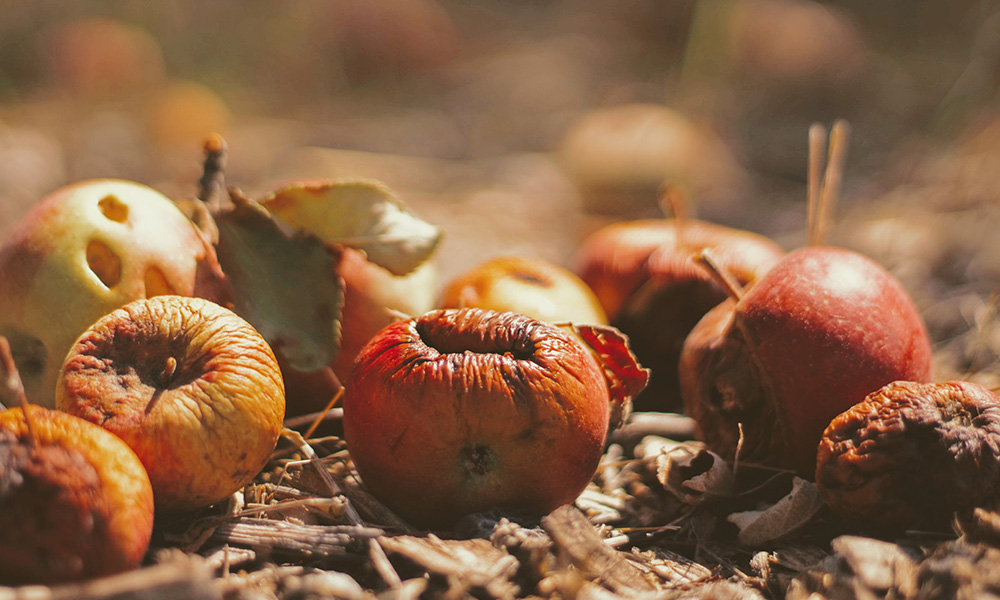
UBCO researchers are looking at ways to convert rotting fruit into energy. Photo by Joshua Hoehne on Unsplash
When Doc Brown fed his DeLorean food scraps in Back to the Future as fuel, it seemed like crazy science fiction.
Now science is taking over that fiction as UBC Okanagan researchers are looking at the potential of using fruit waste—both solid and leachate—to power fuel cells.
While the energy extracted from food scraps still pales in comparison to solar or wind power, researchers are working towards purifying and improving the energy output of discarded food, particularly fruit waste—an item that is in abundance in the agricultural belt of the Okanagan Valley.
According to the BC Government, organic waste represents 40 per cent of material in provincial landfills. In particular, food waste is an increasing problem for urban areas around the world. This is partly the impetus behind a push to harness this waste and turn it into energy, explains UBCO researcher Dr. Hirra Zafar.
“Today food waste is a sustainability challenge with detrimental environmental, economic and social implications,” says Dr. Zafar. “Current waste treatment methods, such as landfills and incineration, are associated with a wide range of adverse environmental impacts, including acidic waste leachate, air pollution, methane production and the release of harmful pollutants that result in environmental degradation and health risks.”
Dr. Zafar, who conducts research in the School of Engineering, says microbial fuel cells convert fruit waste into electrical energy using an anaerobic anode compartment. In this compartment, anaerobic microbes—those that can survive without oxygen—utilize organic matter to convert it into energy.
The electroactive microbes consume organic matter in the anode compartment and release electrons and protons. The electrons combine with protons and oxygen at the cathode to produce water, generating bioelectricity in the process.
Dr. Zafar, says different types of fruits provide different results when processed through a microbial fuel cell—mostly because of their individual biochemical characteristics.
“Carbohydrates are first degraded into soluble sugars and smaller molecules such as acetate, which is then consumed by electroactive bacteria to produce electricity in the process of electrogenesis,” she explains.
Dr. Zafar and her supervisors Drs. Nicolas Peleato and Deborah Roberts, a researcher at the University of Northern British Columbia, are working towards increasing the bioconversion efficiency of fruit which they hope will result in higher voltage outputs.
Unlike in the fictitious approach in Back to the Future where Doc Brown tosses in peels at random, the researchers found that the process worked more efficiently with better output when the food waste was separated, and ground into small particles before processing.
Though challenges remain in converting food waste into bioenergy on a commercial scale, Dr. Zafar says this study reinforces the great possibilities of microbial fuel cells. And turning waste into green and renewable energy serves a dual environmental purpose.
“Microbial fuel cells are really at their developmental stage and they have so much potential,” she adds. “At this point, the voltage remains low, but I am excited to investigate how to improve their power output and apply these practices on a commercial scale.”
The research was a collaboration between UBC Okanagan and the University of Northern British Columbia. It was published in the latest edition of Bioresource Technology.